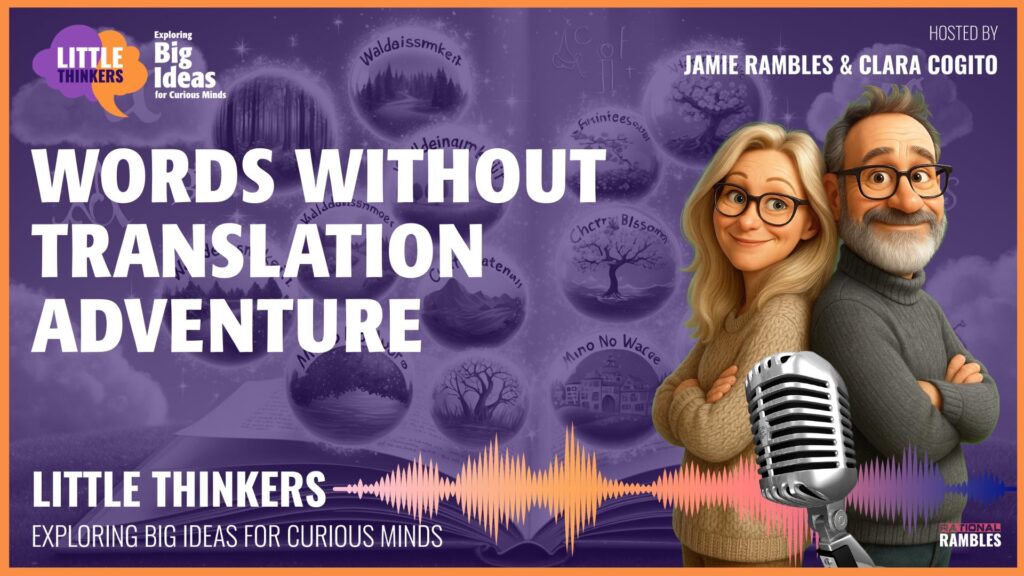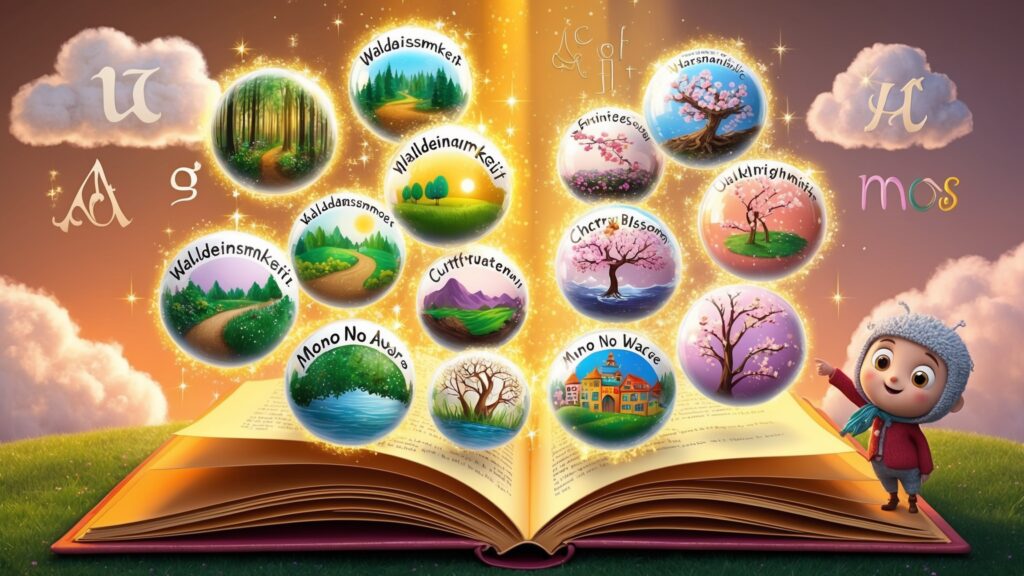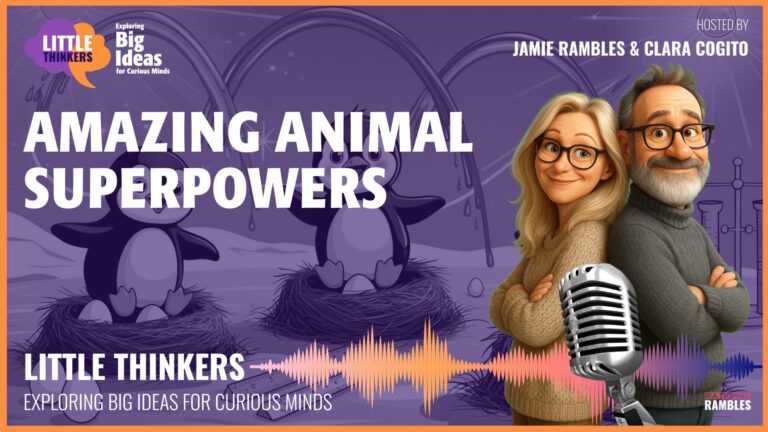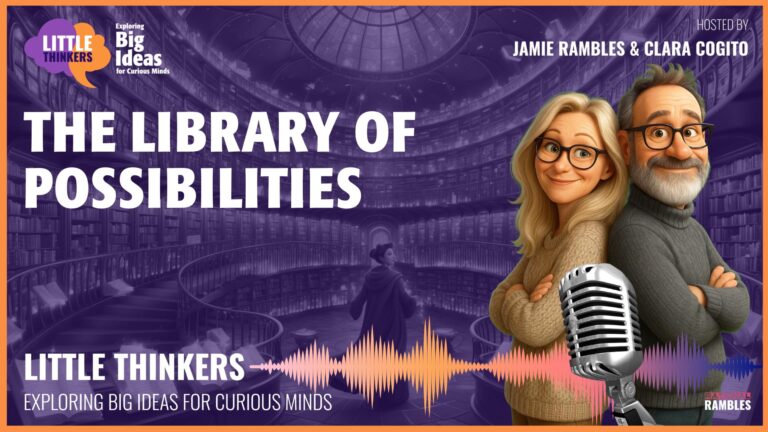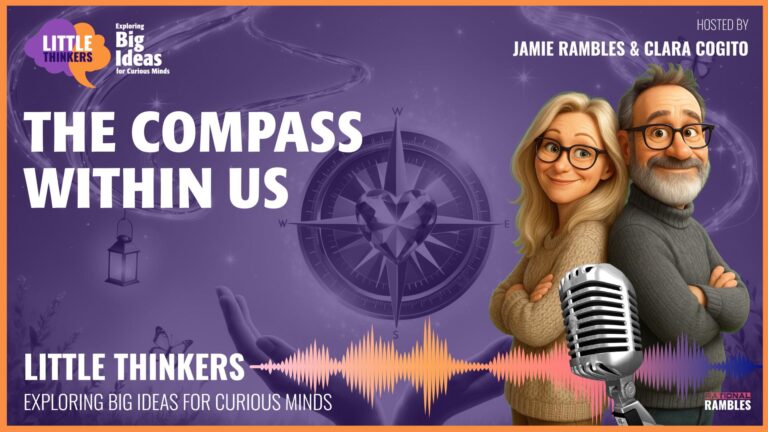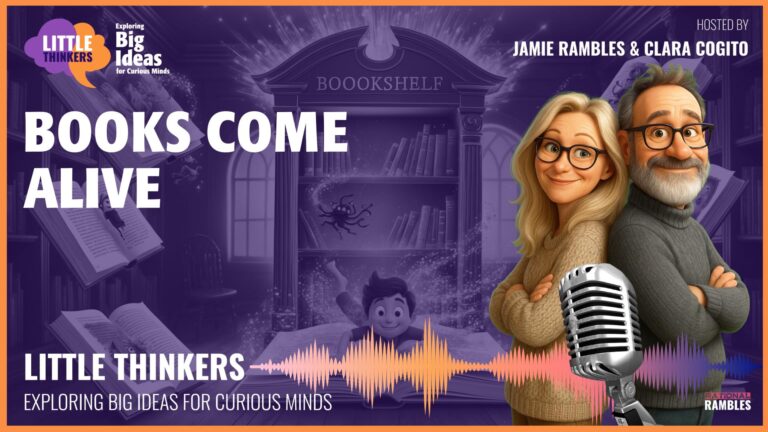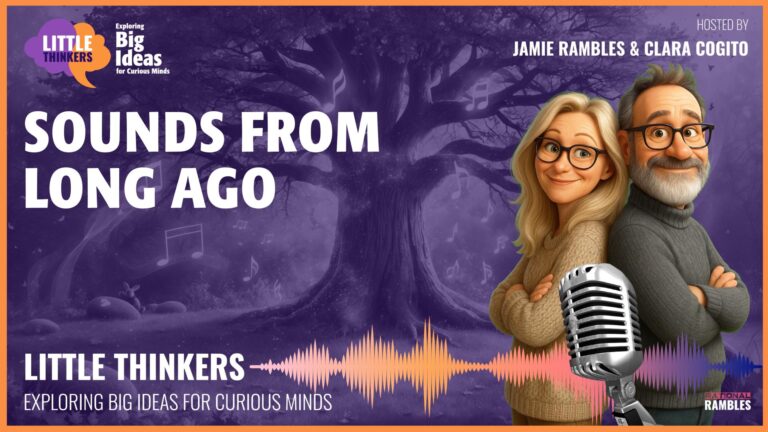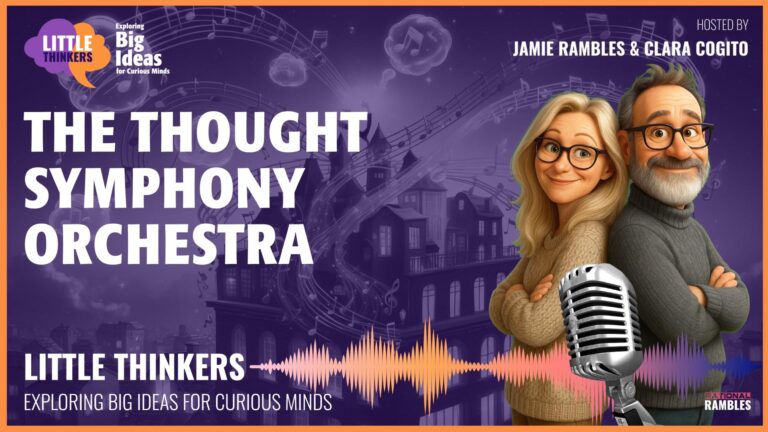The Amazing World of Untranslatable Words
Secret Words Around the World
Have you ever felt something so special that you couldn’t find just one word to describe it? Maybe it was that cozy feeling when you’re wrapped in a blanket on a rainy day, or that funny mix of excitement and nervousness on the first day of school. Guess what? Around the world, different languages have special words for feelings and ideas that don’t exist in English!
These are called untranslatable words (that means words that can’t be easily translated into another language with just one word). They’re like secret treasure chests of feelings that people in different places thought were important enough to name!
Why Do Some Words Only Exist in Certain Languages?
Think about your toy box at home. You probably have special spots for your favorite toys, right? Maybe a special basket just for teddy bears or a special shelf just for toy cars. Languages work a bit like that too!
Different people around the world notice different things or have different experiences that are super important to them. When something matters a lot in a culture (that’s how people in a certain place live and what they care about), they often create a special word just for that thing!
For example, in places where it snows all the time, like Alaska or Greenland, people need many different words for snow. They might have one word for snow that’s good for building snowmen, another word for the dangerous snow that could cause avalanches, and yet another word for the fresh fluffy snow that just fell. In places where it rarely snows, people might just use the one word – “snow”!
Magical Feeling-Words From Around Our Planet
Forest Feelings in Germany
In Germany, there’s a beautiful word: Waldeinsamkeit (say it like: vald-ine-zahm-kite). This is the special peaceful feeling you get when you’re alone in a forest, surrounded by trees and nature sounds.
Imagine you’re walking through a forest. The trees are tall above you, leaves crunch under your feet, and maybe you hear birds singing or a little stream bubbling nearby. You feel small but safe, peaceful but excited all at once. That’s Waldeinsamkeit!
Sunlight Magic in Japan
Japanese has the word komorebi (say it like: ko-mo-reh-bee). This describes those beautiful dancing spots of sunlight that filter through tree leaves onto the ground.
Have you ever tried to catch those spots of sunshine with your hands while sitting under a tree? They move when the wind blows the leaves, making patterns on the ground like nature’s own light show. Next time you see this, you can say, “Look at that beautiful komorebi!” and sound super smart!
Happy-Sad Feelings in Portugal
In Portuguese, there’s a word called saudade (say it like: sow-da-jee). It means missing someone you love very much, but also feeling happy about the love you share with them. It’s like a happy and sad feeling all mixed together!
You might feel saudade when thinking about a grandparent who lives far away. You feel sad because you can’t see them right now, but happy when you remember baking cookies together or the stories they tell you. It’s like a heart-hug made of memories!
Cozy Feelings and Special Moments
The Danish Feeling-Hug
Denmark has given us the wonderful word hygge (say it like: hoo-gah). This is that super cozy feeling when you’re snuggled up with hot chocolate, maybe a good book or movie, feeling safe and warm – like a feeling-hug!
Hygge might happen during a sleepover with friends, all wrapped in blankets watching a movie together. Or it could be curling up with your favorite stuffed animal while someone reads you a story. It’s that warm, safe, comfortable feeling that makes you go “ahhhhh” inside.
Table-Time in Spain
Spanish has the lovely word sobremesa (say it like: so-bray-may-sa), which is the time spent chatting with family or friends at the table after a meal is finished.
Think about Thanksgiving or a birthday dinner when everyone has finished eating, but nobody gets up from the table. Instead, people tell stories, laugh together, and just enjoy being together. That special time – not quite part of the meal but a magical moment of its own – that’s sobremesa!
Beauty and Sadness in Japan
Japanese also has mono no aware (say it like: mo-no no ah-wah-ray), which means feeling a gentle sadness about things not lasting forever, while also appreciating their beauty.
Have you ever felt a little sad on the last day of summer vacation? You had so much fun, and you’re happy about all the great memories, but you also feel a little sad that it’s ending. Or maybe you’ve watched cherry blossoms falling and felt happy about how pretty they are but a bit sad that they only last a short time. That’s mono no aware!
Funny Words for Everyday Situations
The Look Between Friends
In Yaghan, a language from Chile, there’s a super long word: mamihlapinatapai (wow, that’s tricky to say!). It means that special look between two people when both want the other person to do something that neither wants to do first.
It’s like when you and your friend both want the last cookie, but you’re both being polite and saying “You take it!” Or when you and your sister are deciding who has to turn off the light at bedtime. You both look at each other, hoping the other person will volunteer! That silent “You do it!” “No, you do it!” look is mamihlapinatapai!
Staying Home in Your Underwear
Finland has a funny word: kalsarikännit (say it like: kal-sar-i-ken-it). It means sitting at home in your underwear with no plans to go out, just relaxing!
Think about those lazy Saturday mornings when you don’t have to go to school or soccer practice. You might stay in your pajamas, watch cartoons, and just chill out at home. The Finnish people thought this feeling was so important they gave it its own name!
Can We Make Up Our Own Words?
Of course we can! Languages grow and change all the time. If you have a feeling that doesn’t seem to have a name, why not create one?
Here are some fun made-up words for feelings we all know:
- Zoom-belly: That tickly feeling in your tummy when you’re going down a slide really fast!
- Gigglesplode: When you’re trying really hard not to laugh in class but everything seems super funny and the giggles might explode out of you any second!
- Meowsion: The frustrated excitement a cat feels when seeing something they want to chase through a window but can’t reach!
- Worderwonder: The happy feeling of discovering new words that show you new ways to see the world!
Do Words Help Us Notice Feelings?
Having words for feelings can help us notice them more! It’s like having names for different colors. If you know the word “turquoise,” you might start noticing turquoise things more than if you just called everything “blue-green.”
When we learn words from other languages, it’s like getting special feeling-glasses that let us see new colors of emotions! We might start paying attention to feelings we never named before.
A Fun Experiment to Try
Next time you have a feeling that seems hard to describe in one word, try to make up your own special word for it! Maybe it’s the excited-nervous feeling before opening a present, or the satisfied feeling after building an amazing LEGO creation.
Write down your new word, what it means, and share it with friends or family. Maybe your word will catch on, and everyone will start using it!
Why Untranslatable Words Matter
Learning about these special words from around the world helps us understand that people everywhere have amazing, complex feelings, even if they describe them differently. It’s like making friends around the world through words!
These untranslatable words show us that there are many ways to experience the world, and many ways to talk about those experiences. They remind us that even though we might speak different languages, we all have hearts full of feelings.
And maybe the next time you feel something that doesn’t quite have a name in English, you’ll know there might be a perfect word for it somewhere else in the world – or you can invent one yourself!
What Feeling Would You Name?
What special feeling do you think should have its own word? Maybe the excitement of finding a hidden treasure in your backyard? Or the cozy feeling of a warm towel right after a bath? Or even the frustrated feeling when you lose a sock in the washing machine?
Our world is full of amazing feelings waiting to be named. What word will YOU create today?

